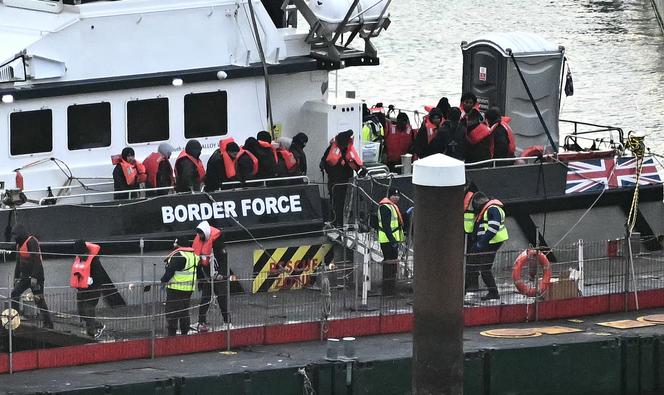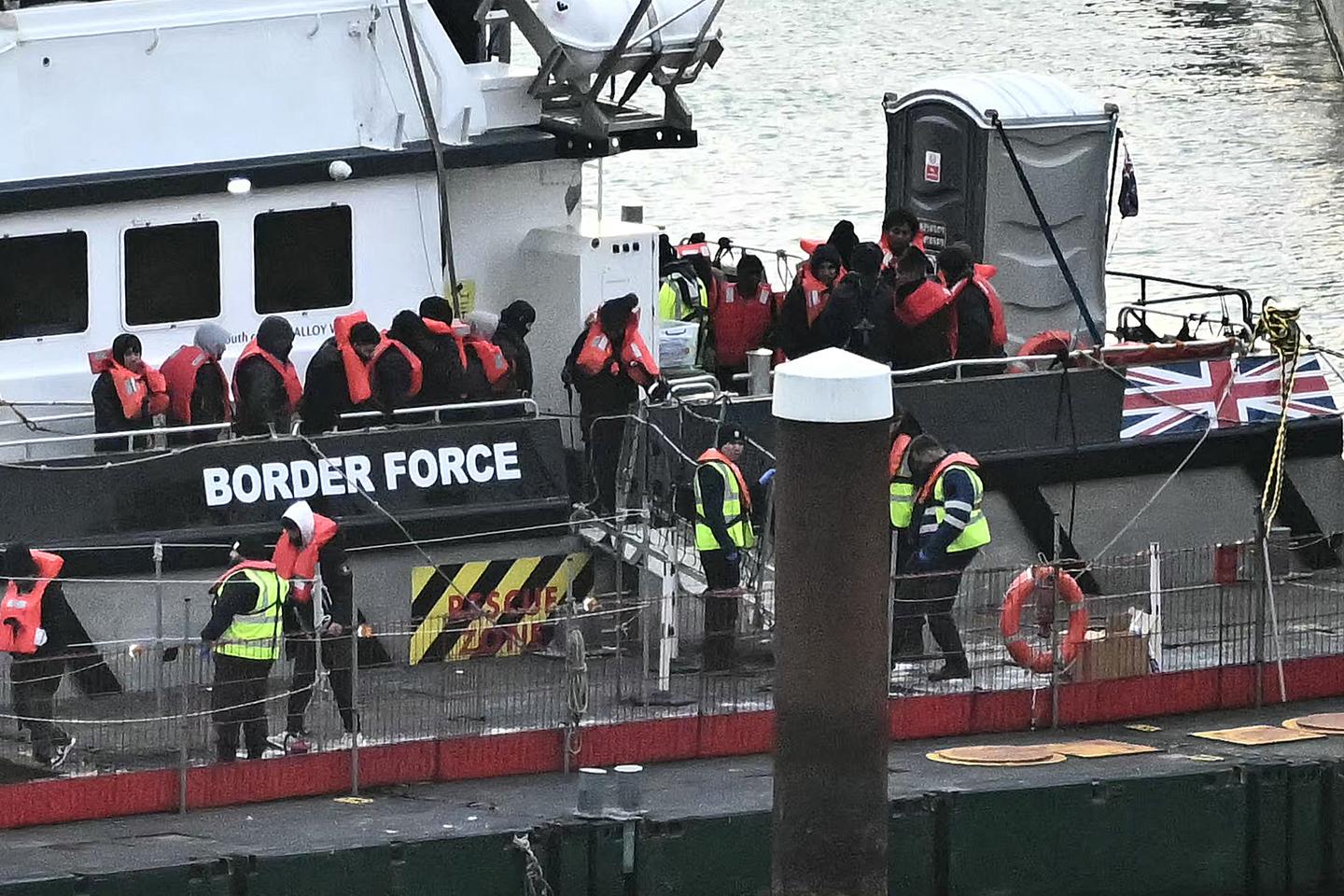 Migrants intercepted at sea as they attempted to cross the Channel from France, at the port of Dover, England, on January 13, 2025. BEN STANSALL / AFP
Migrants intercepted at sea as they attempted to cross the Channel from France, at the port of Dover, England, on January 13, 2025. BEN STANSALL / AFP
One in, one out. The migration agreement between France and the United Kingdom, reached on July 10 to address Channel crossings in makeshift inflatable boats, was set to produce its first results.
Under the principle of reciprocity, the agreement states that London will return migrants who arrive by sea to France. In exchange, the UK will organize a “legal route” for the same number of voluntary migrants from Paris. Nicknamed the “one in, one out” agreement, it was a cornerstone of the rapprochement between France and Britain. For the first time, it established the principle of returning individuals rejected by the UK to France in exchange for a substitute legal route for immigration to the UK.
The goal for both countries is to deter migrants from attempting to cross the Dover Strait. That journey was nevertheless completed by more than 31,000 people in 2025 (and over 182,000 since late 2018).
Read more Subscribers only Migration: France agrees to return deal with UK
On Monday, September 15, the first commercial flights were scheduled to transport returned migrants to Roissy Airport, according to several French and British NGOs, which had identified about 10 individuals served with deportation orders to be carried out in the coming days. Le Monde reviewed at least one such order, which included a flight plan operated by Air France.
You have 73.86% of this article left to read. The rest is for subscribers only.
